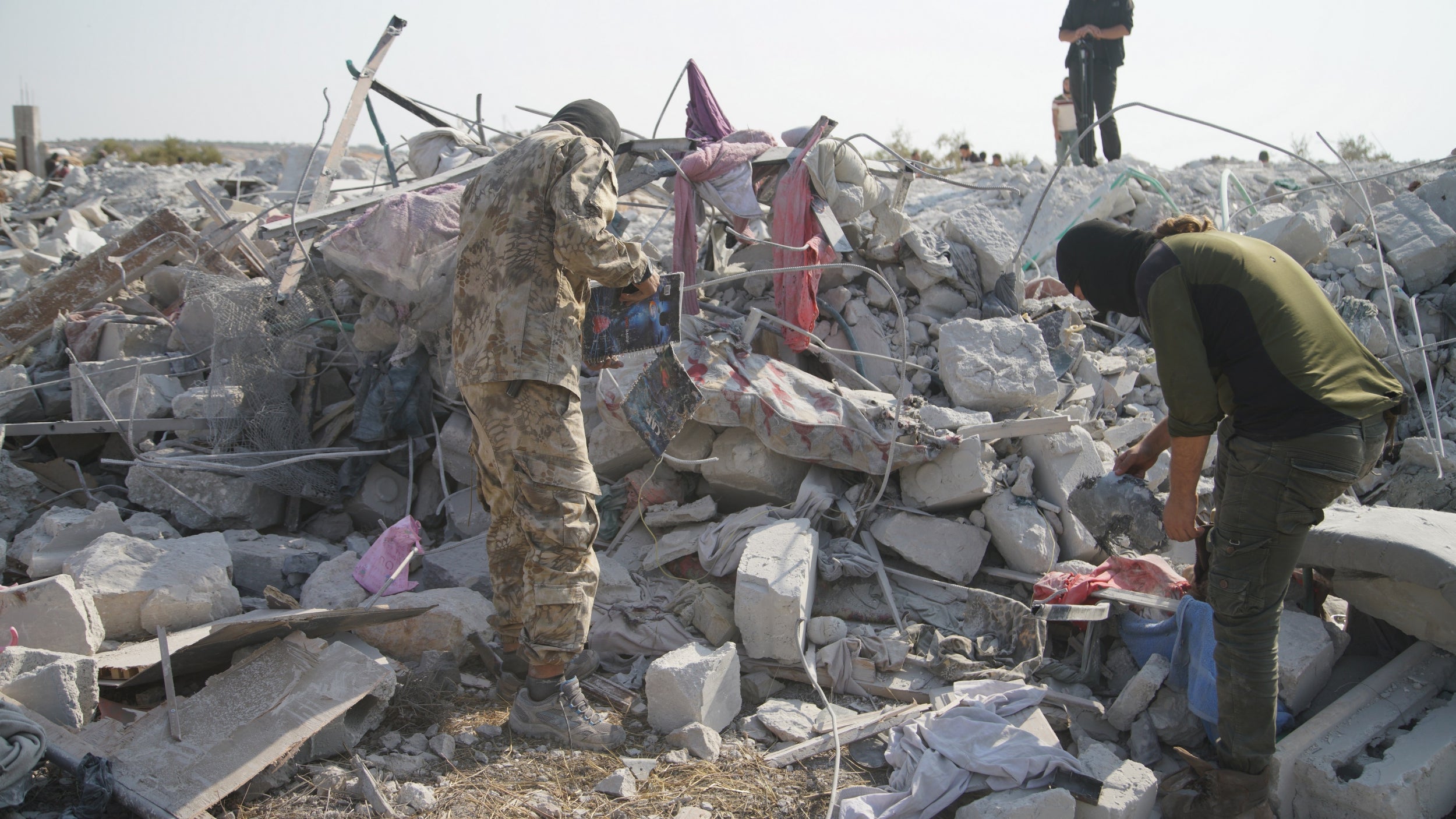Trump says he knows all about the new Isis leader - but experts insist 'The Scholar' remains a mystery
With Al-Baghdadi dead, experts say battle against Isis will largely move online

Your support helps us to tell the story
From reproductive rights to climate change to Big Tech, The Independent is on the ground when the story is developing. Whether it's investigating the financials of Elon Musk's pro-Trump PAC or producing our latest documentary, 'The A Word', which shines a light on the American women fighting for reproductive rights, we know how important it is to parse out the facts from the messaging.
At such a critical moment in US history, we need reporters on the ground. Your donation allows us to keep sending journalists to speak to both sides of the story.
The Independent is trusted by Americans across the entire political spectrum. And unlike many other quality news outlets, we choose not to lock Americans out of our reporting and analysis with paywalls. We believe quality journalism should be available to everyone, paid for by those who can afford it.
Your support makes all the difference.Days after Isis leader Abu Bakr Al-Baghdadi was killed in a raid by US special forces at a compound in Syria, Donald Trump tweeted that “we know exactly” who the replacement is as head of the terrorist group.
Abu Ibrahim al-Hashimi al-Qurashi has been named as Baghdadi’s successor in an audio message released by the group on Thursday.
The terror group appears to have again chosen a leader with scholarly credentials as the statement refers to the man as a “scholar”, the Washington Post has reported.
But intelligence experts say not much is known about the new leader yet, although there are various ways they use to try to find out who he is. Signals Intelligence or SIGINT, is the ability to intercept phone calls, text messages, and any communications between Isis leadership or lower level staff that would provide background on who the new leader is and others that are associated with him.
There is also a network of informants cultivated and already in place within the terrorist organisation, as we saw their intelligence through Kurdish and Iraqi allies led to the raid that killed Baghdadi.
Parts of that network will still be in place and can help create a profile on the new leader.
Other components of the intelligence gathering will be classic efforts to try to research on who this individual is, who would know him, finding friends and family or anyone who has been in his life and can provide any background information.
This all becomes part of creating a psychological profile and building an understanding of who the new leader is and how he operates.
Brett Bruen, former director of global engagement at the White House, who spent one year as a public diplomacy officer in Iraq, says that with the killing of Baghdadi and the defeat of “the caliphate”, the information warfare from Isis is going to be more important. “There is this false narrative from the White House that ISIS is defeated, Baghdadi is dead, and the threat is not significant – that really undermines the need to prioritise this problem,” Mr Bruen told The Independent.
Mr Bruen says the battle will now largely move online where the terror group will try to replenish their funds and recruits, continue to inspire lone wolf attacks, and create new threats for the United States and the region, adding that “we really have disengaged and disarmed a lot of the capabilities to confront them in that space”.
But regardless of the new potential threats, Isis has already suffered massive defeat. The killing of Abu Bakr al-Baghdadi was a major blow to the organisation. Also the loss of physical territory has been a key factor in defeating the concept of the caliphate.
Baghdadi was unique in the way that he turned the organisation into a caliphate with an actual territory, says Mohsen Milani, director of the Centre for Strategic and Diplomatic Studies at the University of South Florida. Mr Milani says he distinguishes between the organisation, the territory, and the finances. They had a caliphate with some money, which is now gone, but the organisation could potentially resurface if the ideology is still there and they have financial support because terrorism can’t survive without money.
The land grab by Isis, while it gave prominence to the idea of the caliphate, is also seen a strategic weakness of the terror organisation. Experts say that helped make the fight against the group more focused among its various enemies and led to its eventual defeat.
“Isis’s model of combining hyper-Salafi terrorism with holding territory was always terminally stupid and doomed to fail. Any new leader who adopts this dual approach will fail,” says Juan Cole, professor of history at the University of Michigan.
“Russo-Iranian support has made Syria no longer a happy hunting ground for such groups, and US and Iran are tacitly allied against it in Iraq.”
Mr Cole adds that the complicating factors right now are the Turkish incursion in northern Syria and the mass street protests in Iraq, which could divert resources from counter-terrorism.
Join our commenting forum
Join thought-provoking conversations, follow other Independent readers and see their replies
Comments